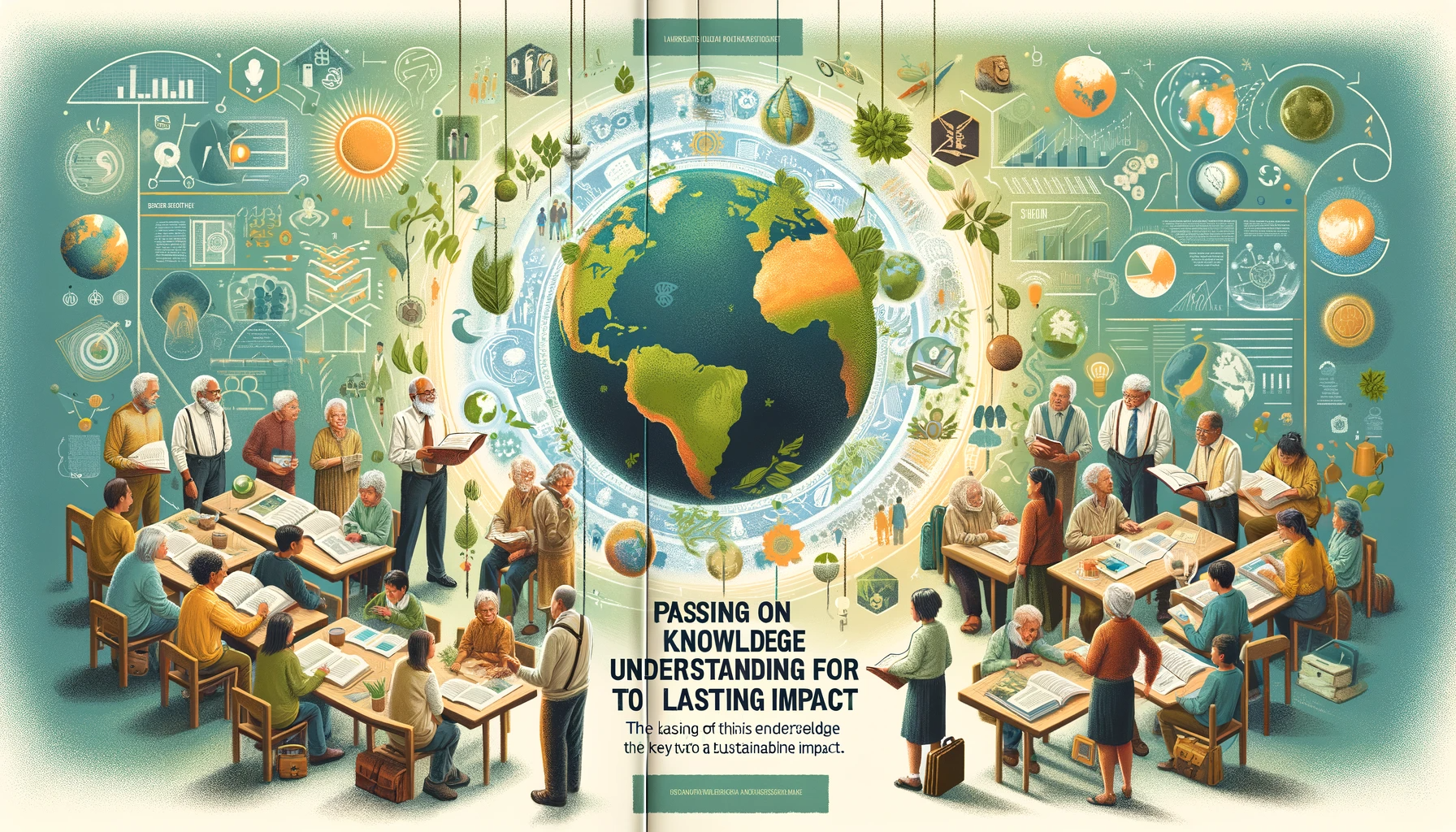The dynamic nature of our global society requires a significant shift from the mere transmission of information to fostering a deep understanding that encourages sustainable knowledge. Sustainable knowledge refers to the capacity to retain, apply, and build upon learned information over time to make informed decisions, solve problems, and contribute to society effectively (Cortese, 2003).
The cornerstone of creating sustainable knowledge is cultivating an environment that encourages active learning. Active learning methodologies, such as project-based learning, problem-solving tasks, and collaborative activities, foster a deep understanding of concepts and enable learners to apply knowledge in varied contexts (Prince, 2004).
Moreover, critical thinking and reflection are crucial in sustainable knowledge. Encouraging learners to question, analyze, and reflect upon the knowledge they acquire facilitates deeper understanding and long-term retention. This approach equips learners with the ability to adapt and apply their knowledge to new and evolving situations, fostering sustainability in knowledge (Paul & Elder, 2007).
Embedding real-world applications into learning experiences also promotes sustainable knowledge. When learners perceive the relevance of what they’re learning, they’re more likely to retain and apply this knowledge. Case studies, fieldwork, internships, and service-learning activities are effective methods of demonstrating real-world relevance (Eyler, 2002).
Another essential element is the use of interdisciplinary approaches in knowledge transmission. By breaking down the silos of traditional education and demonstrating how various disciplines intersect, we encourage holistic understanding, a prerequisite for sustainable knowledge. This approach not only enhances the relevance of learning but also promotes innovative problem-solving and creativity (Newell, 1994).
Lastly, mentoring and coaching relationships play a vital role in the creation of sustainable knowledge. By providing ongoing support, feedback, and guidance, mentors and coaches can facilitate knowledge understanding and application, fostering sustainable learning (Hobson et al., 2009).
In conclusion, creating sustainable knowledge is more than just passing on information. It requires an active, holistic, and reflective learning environment that fosters deep understanding and the ability to apply knowledge in various contexts. As we progress into an increasingly complex future, sustainable knowledge becomes not just a goal but a necessity.
References:
- Cortese, A. D. (2003). The critical role of higher education in creating a sustainable future. Planning for higher education, 31(3), 15-22.
- Prince, M. (2004). Does active learning work? A review of the research. Journal of engineering education, 93(3), 223-231.
- Paul, R., & Elder, L. (2007). The miniature guide to critical thinking concepts and tools. Dillon Beach, CA: Foundation for Critical Thinking Press.
- Eyler, J. (2002). Reflection: Linking service and learning—Linking students and communities. Journal of social issues, 58(3), 517-534.
- Newell, W. H. (1994). Designing interdisciplinary courses. New directions for teaching and learning, 1994(58), 35-51.
- Hobson, A. J., Ashby, P., Malderez, A., & Tomlinson, P. D. (2009). Mentoring beginning teachers: What we know and what we don’t. Teaching and teacher education, 25(1), 207-216.


